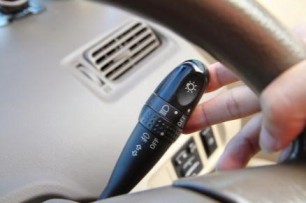Blog Details - Magma HDI

Car Indicators: A comprehensive guide to know more about them 31st January 2022
Cars have multiple indicators, all with specific functionalities. These indicators play a significant role in keeping you and your car safe, especially while driving. They exhibit deceleration, assist in showing the vehicle's change in direction and make the car's functionalities accessible. They help avoid collisions with other vehicles, thus protecting you from accidents and damages.
We need to understand car indicators in a better way. Let us discuss car indicators structurally, functionally, and common mistakes that can endanger you.
1. The structure of indicators:
Whether attached at the side, front, or rear of your vehicle, the car indicators on the exterior provide information to other people on the road via signals, thus maintaining a safe distance with other cars and pedestrians. These indicators are responsible for ensuring safety on the road.
Usually, a car's signal light consists of three parts assembled together-bulb holder, housing, and cover lens.
• The housing consists of moulded reflectors.
• The bulb holder places one or more light sources relative to the optical system of the light.
• The cover lens is in charge of the light distribution through patterned structures.
2. The functioning of indicators:
The rear light consists of several functions which work on the same brightness level during the day, fog, or night. But thanks to the Adaptive Signal System, the signal lights in the rear combination lamp can adapt to the weather conditions individually. The light intensity can be varied according to the weather and the visibility conditions.
More LEDs light up with more significant displays. Different braking signals meet their requirements in other ways, such as increased brightness or flash frequency, ensuring convenience.
3. Handling the indicators:
Pulse Width Modulation (PWM) controls the light sources in many vehicles. It has many advantages, one of which is using the same bulbs for different functions. This also increases the service life of the bulbs.
Note: The manufacturer's information and specifications should be strictly complied with while replacing the bulbs in the signal lights. An incorrect bulb replacement can create an issue regarding the light intensity.
4. The faults:
A faulty indicator signal light can be snuffed out before it becomes dangerous. Without a signal, or failing to use your turn signal while turning or changing lanes can cause confusion between you and the other vehicles. It can further lead to severe accidental circumstances.
Improper use of high beams or glare can cause poor visibility of the vehicles coming in your direction, resulting in collisions leading to severe damages. Avoid driving without headlights at night and use high beams only when there is light traffic or absolutely no cars on the road.
Now that we have discussed car indicators in detail, a wise option would be to understand how unprecedented circumstances can endanger your car's safety and efficiency. To further protect your vehicle, you can research multiple insurance options that provide all possible features required by you. And once you finalise, buy motor insurance online to avoid all the outdoors hassle and add value to your valuable possession.
Click HERE to know more about how you can buy motor insurance online
Disclaimer: The information provided above is for illustrative purposes only. To get more details, please refer to policy wordings and prospectus before purchasing a policy.

